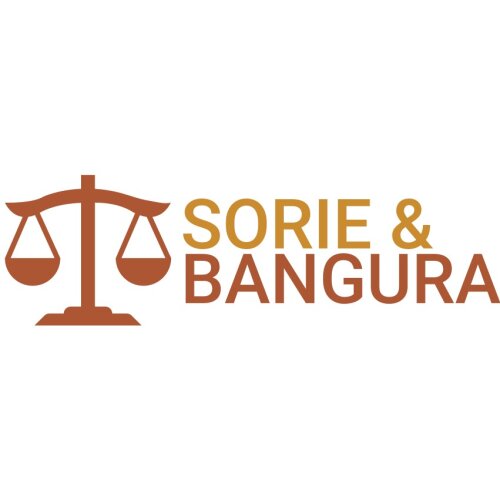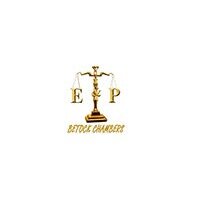Best Restructuring & Insolvency Lawyers in Freetown
Share your needs with us, get contacted by law firms.
Free. Takes 2 min.
List of the best lawyers in Freetown, Sierra Leone
About Restructuring & Insolvency Law in Freetown, Sierra Leone
Restructuring and insolvency law in Freetown, Sierra Leone is a specialized area of legal practice that deals with companies and individuals facing financial difficulties. The primary goal is to provide mechanisms for financially distressed entities to reorganize their business operations or settle outstanding debts in a fair and structured manner. These laws are designed to protect both creditors and debtors, allowing for the orderly resolution of debts, either by restructuring the business to restore viability or, if necessary, by liquidating assets to pay off creditors. In recent years, legal reforms have aimed to modernize insolvency procedures in line with international standards, while also addressing the unique economic circumstances of Sierra Leone.
Why You May Need a Lawyer
If you are facing insolvency or need to restructure your company or personal finances in Freetown, a qualified lawyer can be an invaluable asset. Common situations requiring legal advice include:
- Facing creditor lawsuits or collections actions
- Being unable to pay debts as they fall due
- Business partners or stakeholders demanding restructuring
- Receiving notices of bankruptcy or winding-up petitions
- Needing guidance on the legal implications of voluntary liquidation, administration, or receivership
- Wishing to protect assets during financial distress
- Negotiating with creditors to reach new repayment agreements
An experienced restructuring and insolvency lawyer can assess your situation, explain your legal options, negotiate with creditors, and represent you in court proceedings if necessary.
Local Laws Overview
Sierra Leone's legal framework for restructuring and insolvency is governed by various statutes and regulations, enhanced periodically to reflect global best practices. Key provisions in Freetown include:
- Bankruptcy Act: This is the core statute that outlines the procedures for declaring bankruptcy, eligibility requirements, and the duties of trustees and creditors.
- Companies Act: Contains rules about liquidation, administration, and how companies can be restructured or wound up when insolvent.
- Receivership: Allows creditors to appoint a receiver to take over and manage company assets in order to recover outstanding debts.
- Court Procedures: The High Court of Sierra Leone has jurisdiction over insolvency and restructuring matters, and strict procedural requirements must be followed.
- Creditor Rights: Creditors have rights to file claims, participate in meetings of creditors, and vote on proposed restructuring plans.
- Debtor Protections: The law provides certain protections for debtors to enable them to negotiate with creditors and, in some cases, retain possession of their assets during the restructuring process.
The legal process can be complex, and professional advice is often required to ensure compliance and the best possible outcome.
Frequently Asked Questions
What is insolvency?
Insolvency is a legal status wherein a person or company is unable to meet their debt obligations as they come due. It can lead to formal processes like bankruptcy or liquidation.
What is the difference between bankruptcy and liquidation?
Bankruptcy typically refers to individuals who are unable to pay their debts, while liquidation is the process of winding up a company's affairs by selling its assets to pay creditors.
Can I restructure my debts without going to court?
Yes, in many cases debtors and creditors can negotiate a restructuring or repayment plan out of court. However, formal court approval may provide additional protections and enforceability.
Who can file for insolvency in Sierra Leone?
Individuals, partnerships, and companies facing financial distress may initiate insolvency proceedings, or creditors may petition the court for insolvency or winding up.
What happens to my company during insolvency?
Depending on the outcome, your company may undergo restructuring to improve its financial position or it may be liquidated, with assets sold to pay off debts.
Will all my assets be sold during insolvency?
Not necessarily. Some assets may be protected by law or exempt from liquidation, depending on the type of insolvency proceeding and applicable legal provisions.
How long does the insolvency process take?
The duration varies depending on the complexity of the case, the amount of debt involved, and court schedules. Some cases are resolved in months, while others may last longer.
What are the duties of a liquidator or receiver?
A liquidator manages the process of selling company assets and distributing the proceeds to creditors. A receiver may take temporary control of assets for the benefit of creditors.
Can creditors take legal action against me during restructuring?
Once formal insolvency or restructuring proceedings begin, there are usually legal restrictions on creditors taking separate action. This provides a period for negotiations and resolution.
Do I need a lawyer for insolvency or restructuring matters?
While not legally required in all cases, a lawyer can help protect your rights, ensure compliance with procedures, and negotiate with creditors effectively.
Additional Resources
For more information and assistance, these organizations and government bodies can be contacted:
- Sierra Leone Judiciary: For details on the legal process, filings, and court procedures relating to insolvency and restructuring.
- Corporate Affairs Commission (CAC): Oversees company registration, compliance, and can provide guidance on company law and insolvency procedures.
- Registered Insolvency Practitioners: Qualified insolvency professionals who can assist with managing insolvency cases.
- Ministry of Trade and Industry: Can provide advice for business owners facing financial distress.
- Law Society or Bar Association of Sierra Leone: For referrals to qualified lawyers with experience in restructuring and insolvency.
Next Steps
If you are facing financial difficulties and believe you may need restructuring or insolvency assistance, consider taking the following steps:
- Gather all relevant financial documents, such as statements of assets and liabilities, contracts, and creditor communications
- Consult with a qualified restructuring and insolvency lawyer in Freetown to assess your options
- Be open and honest with your legal advisor about your financial situation to ensure accurate advice
- Follow legal advice closely and ensure all required filings and deadlines are met
- Communicate promptly with creditors and other stakeholders when advised by your lawyer
Acting early and seeking professional advice can often lead to more favorable outcomes, whether your goal is to save your business, settle debts, or protect your assets.
Lawzana helps you find the best lawyers and law firms in Freetown through a curated and pre-screened list of qualified legal professionals. Our platform offers rankings and detailed profiles of attorneys and law firms, allowing you to compare based on practice areas, including Restructuring & Insolvency, experience, and client feedback.
Each profile includes a description of the firm's areas of practice, client reviews, team members and partners, year of establishment, spoken languages, office locations, contact information, social media presence, and any published articles or resources. Most firms on our platform speak English and are experienced in both local and international legal matters.
Get a quote from top-rated law firms in Freetown, Sierra Leone — quickly, securely, and without unnecessary hassle.
Disclaimer:
The information provided on this page is for general informational purposes only and does not constitute legal advice. While we strive to ensure the accuracy and relevance of the content, legal information may change over time, and interpretations of the law can vary. You should always consult with a qualified legal professional for advice specific to your situation.
We disclaim all liability for actions taken or not taken based on the content of this page. If you believe any information is incorrect or outdated, please contact us, and we will review and update it where appropriate.












